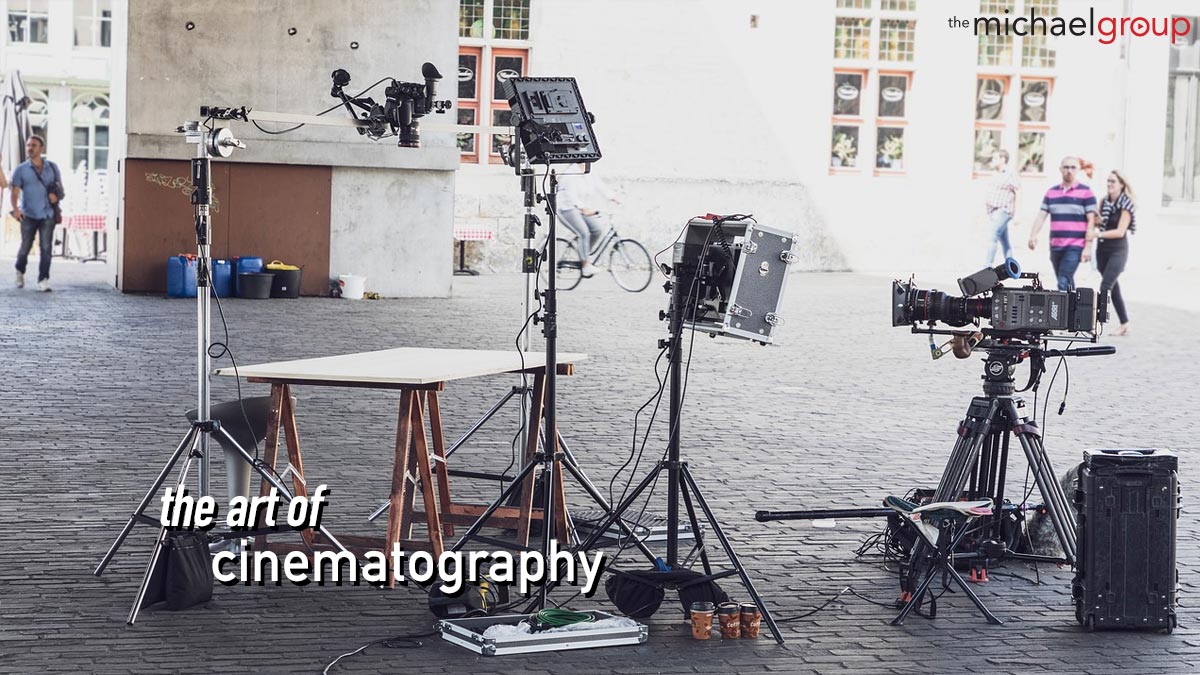
Cinematography is one of the most important components that makes a beautiful film. The art of cinematography is being able to tell a story, and make people feel emotions, through images. It is often said that the key idea behind what makes a good cinematographer is not about having the best film gear but more about how you are able to use it. These days just about anyone can take a good picture or video on their mobile device, but only true artists can understand how to combine good equipment, lighting and composition to be able to tell a good story.
Cinematography can be broken down into two main components: technical and functional. The technical side of cinematography is using either electronics to record light onto image sensors, or light can be recorded chemically onto film to make videos. Then the functional aspect is combining everything to do with the way the camera captures the images. This includes things such as movement, placement, lighting and focus.
A common misconception of cinematography is that it is simply the art of capturing beautiful imagery. This, however, is not the case as often some of the best cinematography can include shots of something perfectly ordinary but does well to generate a certain emotion in the context of the story that is trying to be told. A cinematographer is essentially a director of photography and will work closely with the director from start to finish.
In order to create these powerful visuals, there are certain key components to get right to become a good cinematographer.
Lighting is likely considered to be the most significant element that differentiates brilliant, professional cinematography, from mediocre filmmaking. One of the key things that good cinematographers should be able to do is capture the ideal light to create realism for the people and locations that are being shot. Even more importantly, lighting is used to help set the tone of a particular scene, so it is necessary for the cinematographer to be able to use light in a certain way to create a visual mood. One of the most important jobs that a cinematographer will have to do is make cinematic decisions about lighting requirements, such as what lights, lenses and filters, should be used for different shots.
Although having the best equipment out there does not necessarily make you a good cinematographer, it is important to tailor the equipment to fit your creative vision for the type of shots you are trying to get. Another thing to keep in mind when deciding what type of equipment is best, is that there is no “one size fits all” since there is such a variety of film equipment available in the market today. There are, however, a few essential pieces of equipment that every cinematographer should have. For starters, you will need to choose a video camera. These can vary quite significantly in price so if you’re on a tight budget, the most important thing is to make sure your video camera of choice at least allows you to shoot in high resolution. Other equipment to consider is a tripod for steady and professional shots, a camera light or three point lighting kit to ensure you will always be able to create well-lit scenes, and for great audio you should always have a shotgun microphone and boom pole.
Focus relates to a cinematographer’s decision as to what and when the camera should be focusing on different images during a scene. This is an extremely important element that is used to elicit an emotional response from the audience during a particular scene. This type of cinematic skill comes from a lot of hard work, research, and experience. A well-known cinematography tip is to always try and remain inspired. A good way to do this is to study and learn from the great cinematographers in history. Some of these names include, John Ford who shot Citizen Kane, and Robert Richardson who is known for working with Tarantino to produce some of the most iconic films.
Other key components of cinematography include placement, movement and composition. All of these elements require a good cinematographer to make well thought out decisions and work closely with the film crew, director and editor, to make sure that their creative vision comes to life throughout the production process.
Here at The Michael Group, we make sure our cinematographers are equipped with the best film gear and the most experienced film crews to produce only the best work possible. Our team is made up of years of industry knowledge and expertise and is hand-picked to meet your needs. Get in touch now if you’re looking for the perfect team to bring your television and video production vision to life.